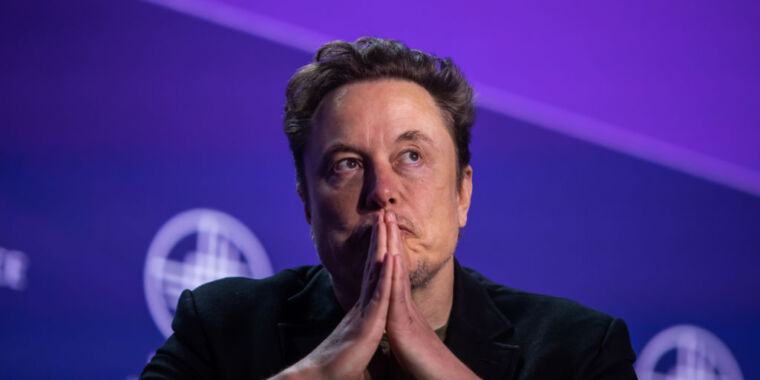- cross-posted to:
- [email protected]
- cross-posted to:
- [email protected]
After the House of Representatives Committee on the Judiciary released a report accusing the Global Alliance for Responsible Media (GARM) of colluding with companies to censor conservative voices online, Elon Musk chimed in. In a post on X (formerly Twitter), Musk wrote that X “has no choice but to file suit against the perpetrators and collaborators” behind an advertiser boycott on his platform.
“Hopefully, some states will consider criminal prosecution,” Musk wrote, leading several X users to suggest that Musk wants it to be illegal for brands to refuse to advertise on X.
Among other allegations, Congress’ report claimed that GARM—which is part of the World Federation of Advertisers (WFA), whose members “represent roughly 90 percent of global advertising spend, or almost one trillion dollars annually”—directed advertisers to boycott Twitter shortly after Musk took over the platform.
Twitter/X’s revenue tanked after Musk’s takeover, with Bloomberg reporting last month that X lost almost 40 percent of revenue in the first six months of 2023 compared to the same period in 2022. That’s worse than prior estimates last May, which put Twitter’s loss around one-third of its total valuation. Ars chronicled the worst impacts of the ad boycott, including sharp drop-offs in the US, where an internal Twitter presentation leaked to The New York Times showed Twitter’s ad revenue was down by as much as 59 percent “for the five weeks from April 1 to the first week of May” in 2023.
Last year, Musk sued other “collaborators” in the X boycott, including hate speech researchers, the Center for Countering Digital Hate (CCDH), and Media Matters for America (MMFA). However, his suit against the CCDH was dismissed this March, and Media Matters has claimed that Musk filing his MMFA lawsuit in Texas may be “fatal” because of a jurisdictional defect.



Let’s just start with deporting two illegal immigrants from South Africa and see how that feels first.
-Milken Institute interview, May 2013>
Everyone knows that only counts if you’re brown